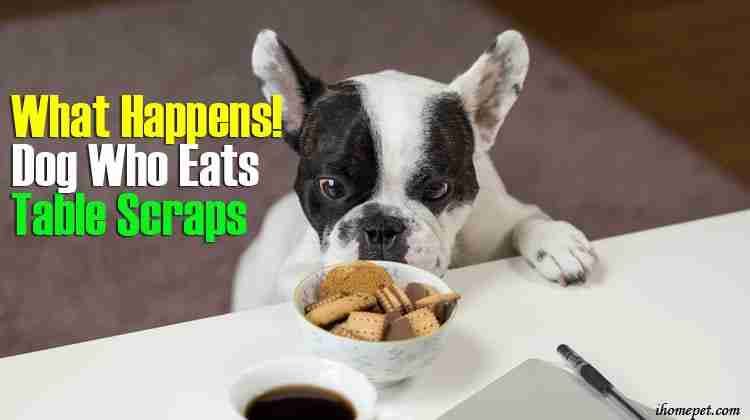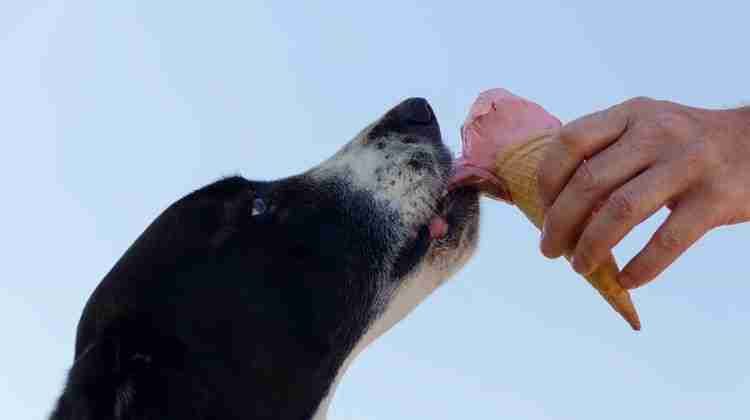
Sometimes our dogs normally ask for our delicious meals when we are at the dinner table. Most often than not, we normally give in to the pleas in a bid to pamper our canine family members. But do you know what happens to a dog who eats table scraps?
Knowing this is important as human beings and dogs have totally different digestive systems and nutrition needs. Find all these in this post.
A Dog Who Begs for Food Isn’t the Best Dog
It is important to understand the potential repercussions of letting your dog feed on table scraps. However, all these starts when your dog begs for food in the first place. This improper dog behavior needs to be discouraged as much as possible.
The begging will almost certainly elicit a positive response from you. Most dog owners want to “look cool” to their dogs hence they find themselves giving them a bite on occasions. Although there are certain human foods that are great for dogs, others do not go well with them.
Therefore, do not always encourage your dog to beg by giving in to her demands. It is a recipe for potential health complications. Once the behavior is established, getting her to stop can be hard as well. It is also annoying, more so when you have friends and guests over.
Dogs are like children. They realize that after doing bad activity X (beg, whine or cry), then good activity Y is done to calm them. Such a behavior becomes too tedious to stop, hence should better be averted before getting out of hand.
So, what Happens to a Dog Who Eats Table Scraps?
-
The Dog Becomes A Picky Eater
A little of human food from your dinner table is not always too much. But if you feed them on scraps on a regular basis, chances are that they will get used to it. And since dogs are always a cuny and intelligent type of animal, they will start disliking their regular menu.

On numerous occasions, I have seen dog owners rush to a vet office simply because their Fido wouldn’t eat. But when given eggs, chicken, beef or any other human food, they gladly eat. It is this type of pickiness that you have to watch out for.
And we all know how problematic it can be when a dog does not want her generic kibble. The difference in nutritional needs means that the dog cannot survive on “good food” from your plate.
-
Exposure to Health Risks
Another consequence of misplaced kindness from dog owners is the exposure to several health risks. The titbits and leftovers from your plate are not digested by carnivores the same way our digestive system does. These foods then become quite toxic to a dog that was initially healthy.
Most of the time, the “junk food” as I refer to them, have very low nutritional value to a dog. They may be nutritional to us, but carnivores require foods rich in proteins to be healthy. In more severe cases, foods containing garlic, chocolate alcohol, onions etc. can be very toxic to a dog.
These flavoring you love so much causes a range of reactions in a dog. Allergic reactions, seizures, lethargy, vomiting, and in more extreme cases, death are some of these reactions. Just because the dog loves them doesn’t mean they won’t affect him in one way or another.
If your scraps contain bones, then you pose another danger to your furry friend. Small bones that are prone to splintering present a choking hazard if ingested. The splinters can as well damage the dog’s digestive systems as some are sharp enough to potentially pierce the intestines.
There are certain human foods with too much sodium content. Salt intake beyond some limit increases the risk of dehydration in a dog. This problem results from the increased urination as the body works to get rid of the excess salt.
-
Increased Weight and Obesity
Scraps from your table are most likely to be junk food. Or if they are not, then the quantity of processed salt and sugars are then too high. If your dogs consume a huge quantity of such foods, then it is highly probable that they will gain weight.
Combined with high amounts of fats and flavors, that’s difficult to process for a dog and the risks become too much. Obesity and increased fat content in a dog exposes them to increased risk of heart and other cardiac related health risks.
Certain breeds of dogs are better equipped to deal with the increased fat content than others. A sporty/athletic dog who exercises most of the times will obviously not be at a greater risk. However, a sedentary canine friend who is mostly indoors won’t cope with the high fats.
-
The Dog Grows Healthier
Human foods are not automatically bad for a dog. When given responsibly and the toxic ingredients avoided, human food can immensely supplement the regular kibble. Once in a while, I add a little bit of vegetables and scrambled eggs to my dog’s dry foods.
Pieces of boiled beef, cooked oatmeal, white or brown rice potatoes and deboned chicken and turkey are good. These are foods that can form a cheaper way of giving treats to your dogs and making them eat their kibble with ease.
As you occasionally feed your dog from scraps or the actual food that you eat, it is worth noting that moderation is key. Also, you need to consider the Healthwise condition of the dog. If she has any prior condition such as diabetes or allergy, then scraps will not be such a good idea.
Make the right decision for your dog
As a rule of thumbs, table scraps are not good for dogs. They get more nutrients from their natural kibble than they would from your leftovers. Other foods are also toxic more so when ingested in large quantities or taken on a regular basis.
Knowing what happens to a dog who eats table scraps better equips you to take good care of your dog. You need to further do some research on the foods that your dog can and shouldn’t eat afterwards.
Last Updated on 16/03/2025 by Karen Snow
Hi! I’m Karen and a certified dog lover. As a freelance writer and blogger, I do my best to squeeze in some time with my dogs, learning more about the way they act and how I can make sure that they continue to stay well-cared for by yours truly.
My dogs have helped me through a lot, and this is my way of giving back to them! Besides animals, I also love to travel and cook, having explored my country’s restaurants and unique places. Follow me as I show you all the amazing tips and bits of information I learn along the way about our furry friends!
